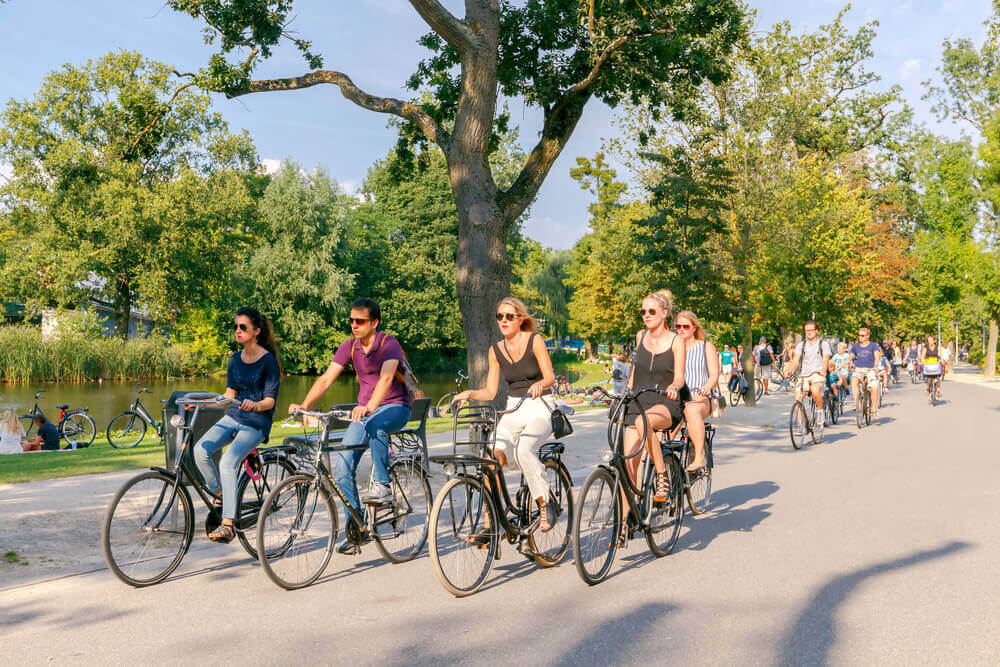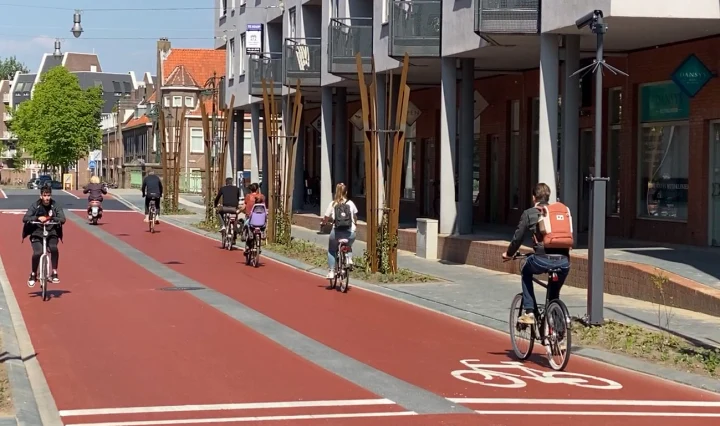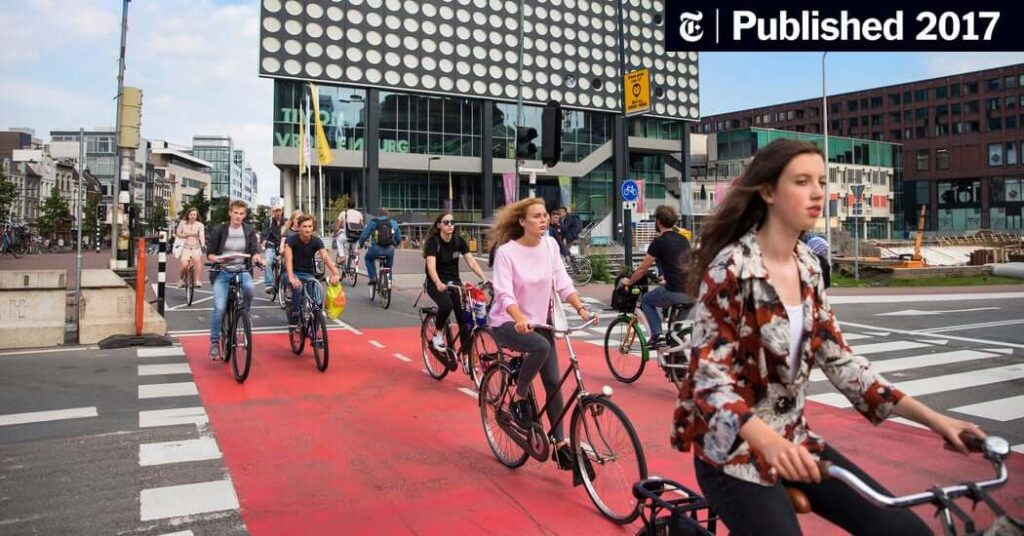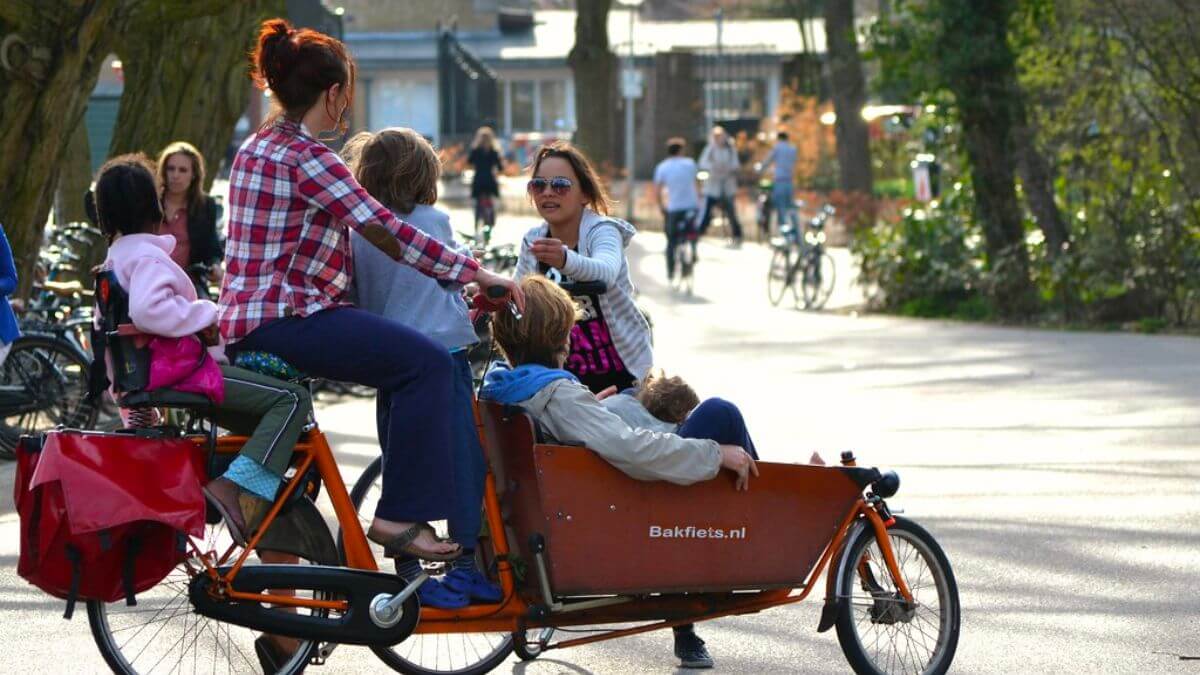Most Dutch people cycle without helmets, which may surprise many tourists. People in the Netherlands may notice if you are wearing a helmet when cycling.
Cycling is a big aspect of Dutch culture. When the Dutch dared to ride on roads where most people don’t (like carrying a TV in the back seat), you’d think they’d be extra cautious by wearing helmets, wouldn’t you? No, it does not.
Here are some of the reasons why Dutch people do not wear helmets:
Cyclists are more visible to other road users – Dutch cycle without helmets

Bicycles account for more than 27% of all trips in the Netherlands. Wherever you ride your bike (save on the highway), you will nearly always share a portion of your journey with another biker.
Compared to the UK, where only 4% of journeys are conducted by bicycle, it is easy to see why car users in the Netherlands are so accustomed to sharing roadways.
According to Peter van der Knaap, Director of the Dutch Institute for Road Safety and Research (SWOV), cycling is growing safer over time as more Dutch people cycle.
Going by bicycle is less safe than traveling by automobile, according to SWOV. Riding a bicycle, on the other hand, is safer than riding a motorcycle or scooter.
Related: Why is Cycling in Netherland unforgettable?
When walking, no one wears a helmet.

This may appear to be a poor argument, yet it is correct! Head injuries are less dangerous than when riding a bicycle. Furthermore, they are more likely to occur in cars, and most head injuries occur when walking.
Furthermore, falls account for roughly half of all traumatic brain injuries in the United States. However, no one is asking for mandated helmet use in the automobile or when walking in the summer.
Five-year-old traffic instruction – Dutch cycle without helmets
When Dutchies was five years old, he began school with Verkeerslessen (traffic instruction). Running around the playground knowing that red means stop and green means go may be the beginning.
The older the Dutch children become, the more difficult their studies become, and before you know it, they’re all pedaling to school on their own. They must, however, complete a cycling exam before they are officially permitted to begin cycling on their own.
Related: 110 Crazy Dutch Bicycles Ideas Will Surprise You!
Helmets may be ineffective.

Many Dutch people believe that bicycle helmets are restricting and can block a cyclist’s vision, making it impossible for bikers to rapidly look over their shoulder to check for traffic or turn right without hitting anyone.
To support this argument, Theo Zeegers, a traffic consultant with Fietsersbond, argues, “If you were hit by a car on your bike, no helmet would protect you.”
There has never been a bicycle helmet designed to protect you from the deadly collisions that occur at high speeds. It’s difficult to create such a helmet, and I doubt one will ever be created.
Finally, he claims that helmets can be advantageous in a collision with another biker. A helmet, on the other hand, will not help you if you are hit by a car. A controversial statement!
Less constraints = more cycling

Cycling every day (the Dutch manage at least 70 minutes each week!) means that the Dutch have earned their weekend donuts and chips.
According to a 2015 study on the benefits of cycling in the Netherlands, all of this cycling and fresh air meant that Dutch people lived half a year longer and had fewer deaths. More than 6,500 people are killed each year.
Helmet rules are implemented in several countries, according to Cycling UK, resulting in a considerable decline in bicycle use. For example, bicycle use in Western Australia has plummeted by roughly 30% after such regulation was implemented. So what if the government decides to make wearing a helmet mandatory?
Who knows what might happen if the Dutch government imposed a similar ban. It’s probable that if people didn’t have helmets, they wouldn’t have gone on as many short bike trips.
Instead of promoting and legislating helmets, the Dutch appear to be more concerned with enforcing reasonable cycling regulations such as not riding when drunk, not texting while cycling, and having a lane. Make sure the bike has enough light.
